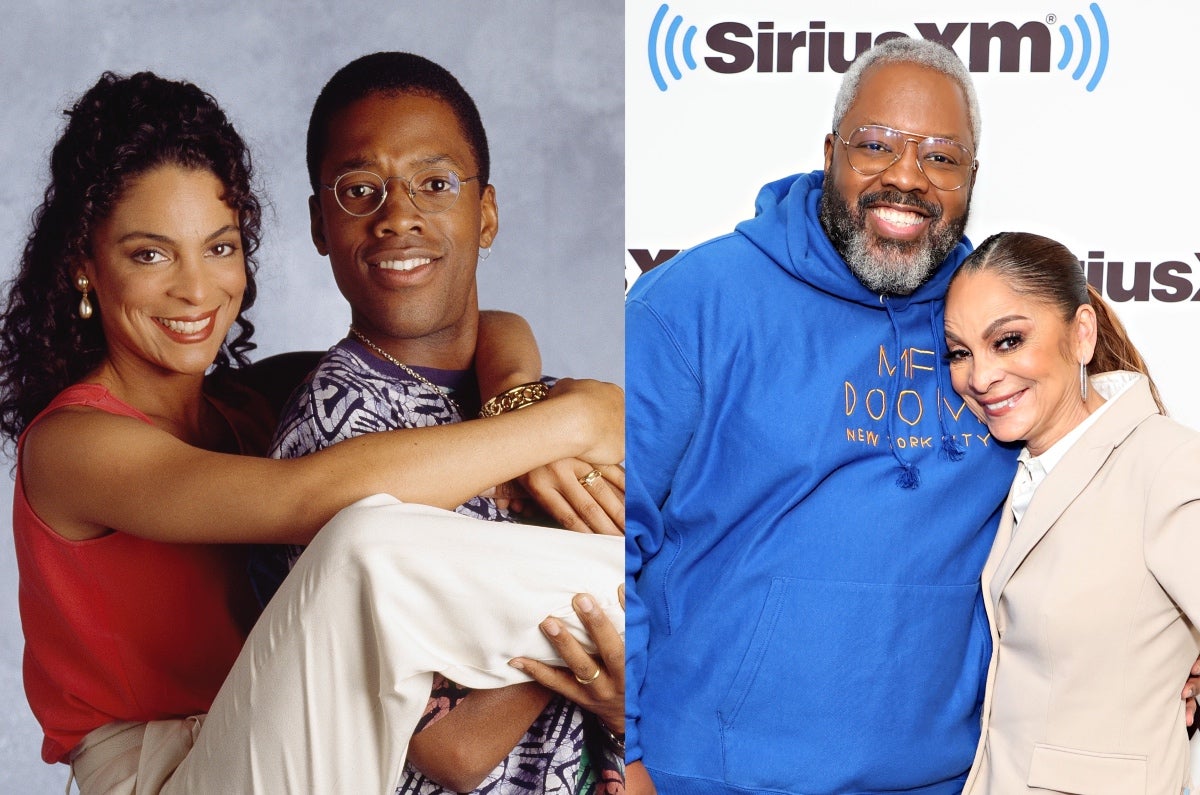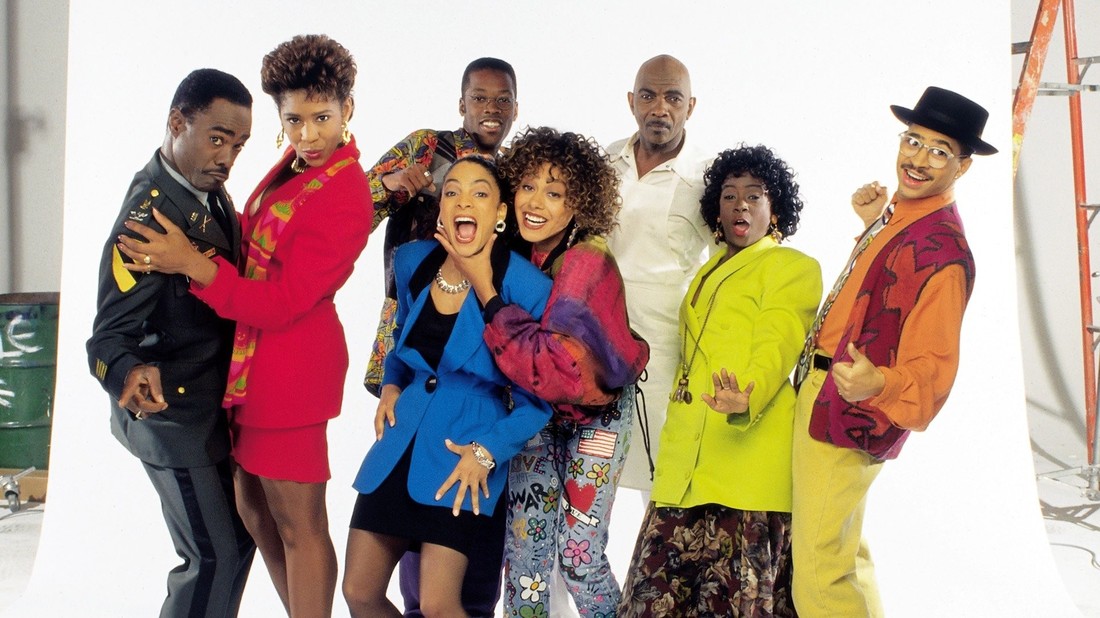
Jasmine Guy veers across the set of NBC’s A Different World like a car about to spin off a racetrack, and everyone else stands clear. Guy is having a monster tantrum, bellowing, ”I’m Big Sister Gorgeous One! I’m Big Sister Gorgeous One! I am Big Sister Gorgeous One!” to every flinching colleague within earshot.
”Nice,” says actor-director Glynn Turman. As the scene ends, Guy, a petite, gregarious whirlwind who can shrug out of her performance as steel magnolia Whitley Gilbert in a second, assumes her human-scale off-camera persona. Chuckles erupt from crew members, their bellies shaking over their tool belts. Guy wheels and she’s suddenly transformed back into leather-lunged Whitley. ”Hey!” she yells. ”Save your laughter for the show.”
:max_bytes(150000):strip_icc():format(webp)/gettyimages-140625666-2000-57d57ff0b6a44cdda31b6773e48e99ba.jpg)
She doesn’t have to worry. Something funny has been happening on A Different World, which is more than anyone who remembers the show’s resolutely laughless first season might have expected. Conceived as a spin-off from NBC’s The Cosby Show, the new series was to take teenager Denise Huxtable (Lisa Bonet) from Brooklyn to a new life at Hillman, a black college in the South. Despite that pedigree, World began its run in 1987 as an ugly duckling sheltered only by the wide wing of creator Bill Cosby. Though its post-Cosby time slot guaranteed high ratings (the show was No. 2 its first year), World‘s on-screen dreariness and backstage chaos were public embarrassments for NBC, Cosby, and executive producers Marcy Carsey and Tom Werner (The Cosby Show, Roseanne).
Three years later, however, viewers are seeing a truly different World: an ensemble comedy about black college life that’s brightly acted, politically and socially attuned, idiosyncratic, and yes, even funny. This season, the series has silenced those who claimed it was only a coattail ratings success by passing The Cosby Show in the Nielsens (broadcast at 8:30 Thursdays, World ranks fifth, while Cosby has dropped to seventh). And, in a development that’s even more surprising, black artists behind and on-camera have assumed control of the series and helped it gain respect as well as viewers.

But even on this Monday morning in late March, as the cast and crew gather on a Studio City soundstage to rehearse a spring episode, they admit that a long shadow is cast by that first season, which drew one of the most concentrated doses of critical vituperation ever to greet an instant ratings hit. ”A stiff,” snapped one review. ”Bland and unfunny,” said another. ”Awful.” ”Calamitously drab.” ”A big yawn.”
The verdict from those on the show was almost as harsh. ”We tried to follow the Cosby model: Pretend it’s timeless. Make no references to current events. Make no references to race,” says Susan Fales, a first-season staff writer who now serves as co-executive producer. ”And we were under orders from NBC to stay away from anything academic — they felt that was alienating. So we had a show about a black college that wasn’t about college and couldn’t be black.”
”It was a nightmare,” says Dawnn Lewis, the indestructible actress whose character, Hillman alumna Jaleesa Vinson, is the only one to have survived all of World‘s regimes since the pilot. ”I’ve never seen so many people come and go.”
The gaffes were innumerable. A white roommate for Denise appeared without explanation. The sets and costumes looked musty and anachronistic. And Bonet proved hollow as the center of a sitcom. (”She’s taken a lot of blame,” says Fales, ”but the character was far more at fault. Denise was not very interesting, and we were asked to make her into Mary Tyler Moore or Tinkerbell, always bringing everyone together. We couldn’t.”)

”The show took a particularly long time to find its way,” says Carsey. A couple of changes worked well: The now-integral characters of Whitley and Dwayne Wayne (Jasmine Guy and Kadeem Hardison) were created after the pilot and frantically spliced into already-completed episodes. But misery ruled. ”There was an Alexander Haig complex,” says Darryl M. Bell, who plays student and self-described ”campus tramp” Ron Johnson. ”Everybody wanted to be the boss.”
”Coming from Broadway certainly gave me no credibility,” says Guy. ”The attitude was ‘Well, you don’t know sitcoms.’ Even if we dared to suggest something wasn’t funny or realistic, it was discounted. And people we worked with one week were gone the next. It was very tense and frightening.”
When Bonet became pregnant at the end of the first season, World faced another crisis. ”We’d never even written her a boyfriend,” recalls Fales. Rather than contend with an unwanted plot twist, the producers wrote her out.
After exhausting the talents of a series of sitcom fixers who came and went, Carsey and Werner knew the show needed a savior, and they found one. Bell glances at Guy and costar Charnele Brown (who plays premed student Kim Reese) as they sit around a table on the set of the Pit, the Hillman College cafeteria.
